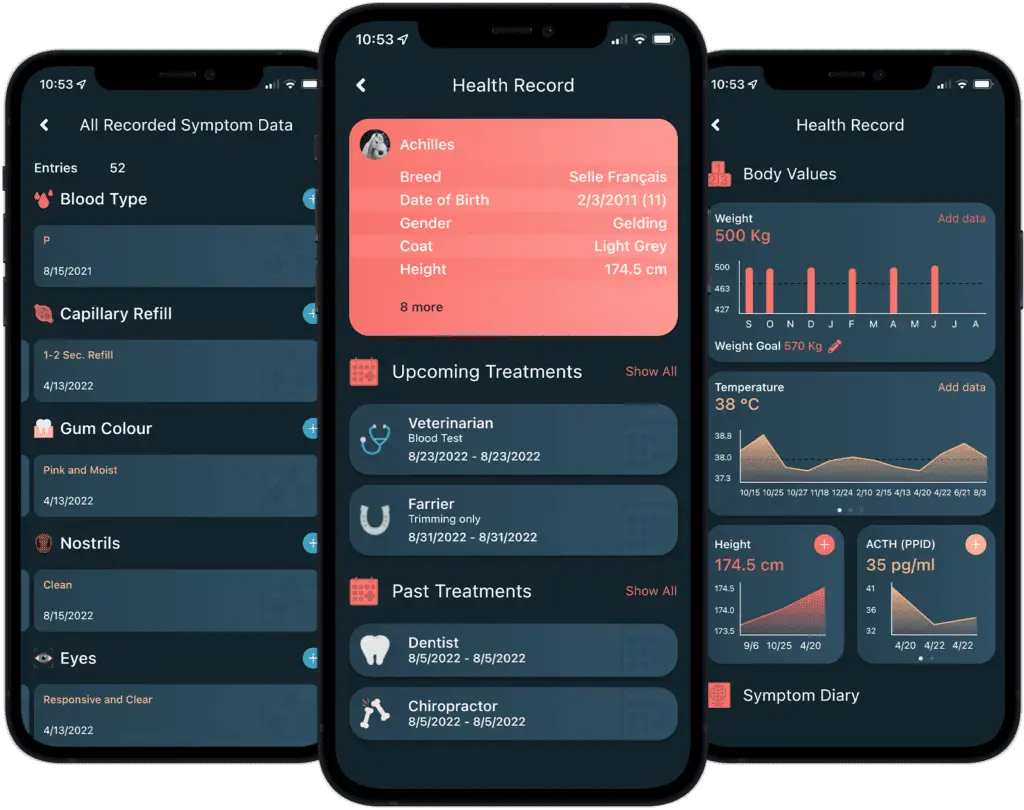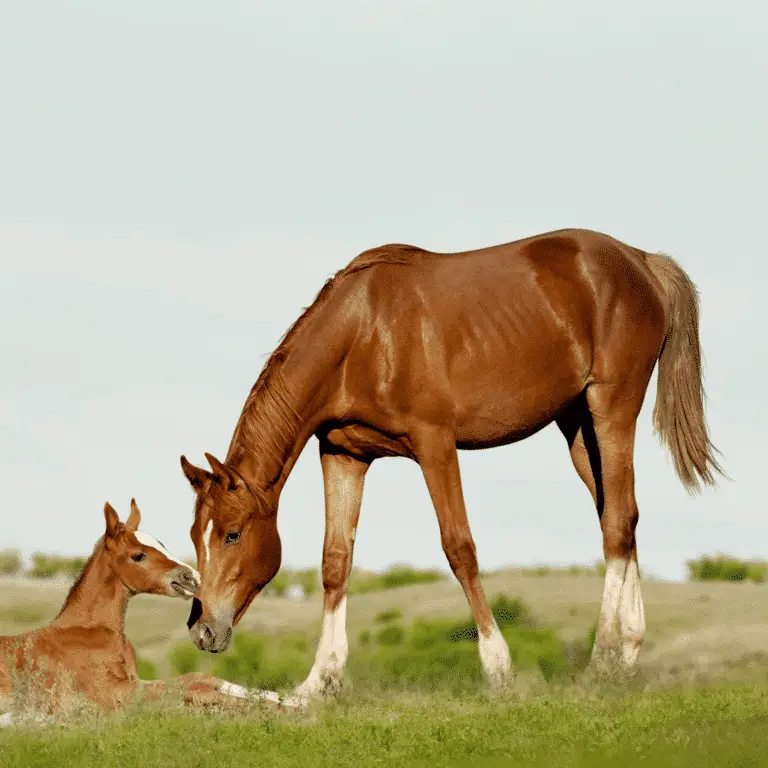
Abortion in Horses
Abortion in Horses Seek veterinary advice if you suspect this disease. Equine Abortion is the loss of a pregnancy before

Seek veterinary advice if you suspect this disease.
Equine Abortion is the loss of a pregnancy before the fetus is viable. This can occur at any stage of gestation, but is most commonly observed between the 5th and 11th months of pregnancy. The causes of abortion in horses are diverse and can be broadly categorized into infectious and non-infectious factors. Infectious causes include bacterial, viral, and fungal infections, with Equine Herpesvirus-1 (EHV-1) and leptospirosis being among the most common. Non-infectious causes include genetic abnormalities, hormonal imbalances, stress, trauma, and nutritional deficiencies.
The most common reason for abortion (after infectious causes) in horses is twinning because the equine uterus cannot adequately support the development of two fetuses, leading to competition for space, nutrients, and blood supply. This results in placental insufficiency, underdeveloped fetuses, and higher risks of complications such as placentitis and dystocia. Twinning occurs in about 10-15% of equine pregnancies if not managed, but early detection through ultrasound allows for twin reduction procedures to increase the chances of a successful single pregnancy
The clinical signs of impending abortion can vary but often include vaginal discharge, colic, and premature lactation. In many cases, however, there may be no warning signs before the abortion occurs. Abortion can have significant economic and emotional impacts on horse owners, particularly in breeding operations, making it essential to identify the cause and implement appropriate management strategies.
The treatment of abortion in horses depends on the underlying cause. Once an abortion has occurred, veterinary intervention focuses on the health and well-being of the mare, as well as preventing future occurrences.
Veterinary Examination: A thorough examination by a veterinarian is essential to determine the cause of the abortion. This often involves collecting and analyzing samples from the aborted fetus and placenta, as well as blood tests from the mare.
Infectious Causes: If an infectious agent is identified, appropriate antimicrobial or antiviral treatments will be administered. For instance, antibiotics may be used to treat bacterial infections, while antiviral medications are used for viral infections like EHV-1.
Supportive Care: Providing supportive care to the mare is crucial. This may include anti-inflammatory medications, fluids, and nutritional support to help her recover from the abortion.
Future Pregnancies: Once the mare has recovered, the veterinarian may recommend specific measures to improve the chances of a successful future pregnancy, such as vaccinations, hormonal treatments, or changes in management practices.
Preventing equine abortion involves regular veterinary check-ups to detect and address issues early, proper vaccination to prevent infectious diseases, and maintaining a balanced diet to ensure nutritional adequacy. Reducing stress through stable management and minimizing changes in the environment also helps. Implementing good biosecurity measures can prevent the spread of infectious agents. For mares at risk of twinning, early pregnancy ultrasounds and appropriate intervention, such as twin reduction, are crucial.

Digital health management offers numerous benefits in modern equine healthcare.
With the Happie Horse App, you can track symptom patterns and body values, such as Temperature, Pulse and Respiration. Allowing you to notice abnormal changes in body and behaviour early on, leading to more successful treatments.
The Happie symptom checker allows you to add all of your horse’s abnormal symptoms in order to present potential causes and diseases.

Abortion in Horses Seek veterinary advice if you suspect this disease. Equine Abortion is the loss of a pregnancy before

Contagious Equine Metritis (CEM) Seek veterinary advice if you suspect this disease. Contagious Equine Metritis (CEM) is a sexually transmitted